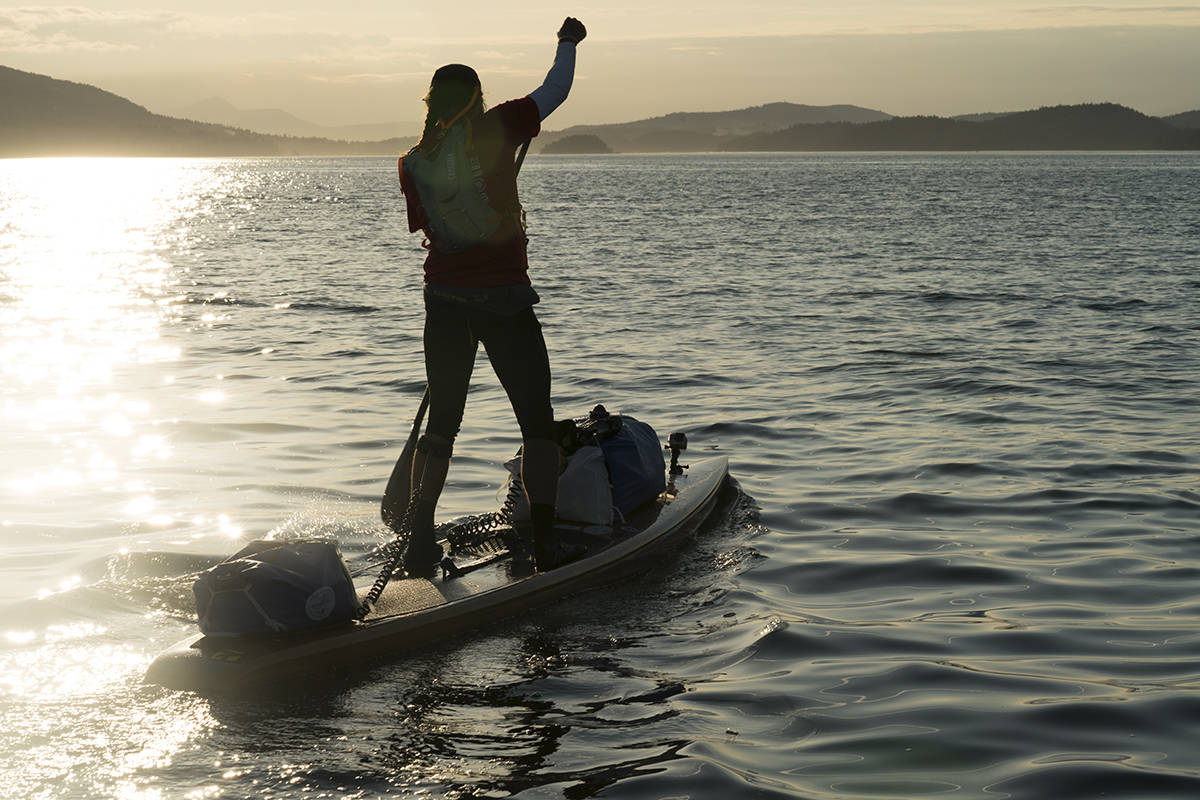by Heather Wallace
Special to the Sounder
This summer, Karl Kruger will take on the untamed wilderness and attempt something that has never been done before.
The first time he got on a standup paddleboard (SUP), he felt like all the different water activities he’d experienced throughout his life were brought together into “one perfect little nut.”
The Orcas Islander’s advice to fledgling adventurers: “Make sure whatever goal you’re setting for yourself, it’s coming from your own. … pool of experience. Don’t just jump into something that looks cool, because you might not be up for it. It’s a dangerous thing.”
In July, Kruger will attempt a two-month SUP expedition through the Northwest Passage. His journey will lead him through the unpredictable, unforgiving terrain of the Alaskan wilderness and through only seven “towns.” Kruger’s plan is to take the Amundsen Route and is hoping to end up in Pond Inlet, weather permitting.
The project is associated with Project Ocean Watch, a two-year science expedition seeking to raise awareness of climate change. Kruger is raising $10,000 for his journey; a GoFundMe page is at https://bit.ly/2MvsY8R.
In 2017, Kruger paddled into Ketchikan two weeks after he began the 750+ mile Race to Alaska, becoming the first person to finish unsupported, on a SUP. Of 62 boats, kayaks and SUPers, only 27 people finished.
Beginning in Port Townsend, day one of the R2AK has two challenges: make it to a checkpoint within a specified time limit and commit to a dangerous piece of water. Both physically and mentally challenging, coastal routes must be analyzed in a holistic manner to study how systems roll in and out of each area, the microclimates in individual inlets, tides, shipping traffic and time of day.
With day one complete, Kruger was set to face the Northern Strait of Georgia (“a washing machine”), and then Seymour Narrows – known to flow at up to 16 knots. In waves up to his shoulders, he surfed from Hornby Island to Campbell River where he saw a forecast calling for a strong southeastern gale through the Johnstone Strait – an area known for strong northwesterly events. He rested for an hour and a half and took off in the dead of night, paddling for 20 miles in the pitch dark through calm, sultry waters, surrounded with bioluminescence.
Kruger arrived in Johnstone in time to catch that south-easterly gale and rode the waves at an average speed of 12 knots. After a quick sleep he decided to gun it and take advantage of the forecast for calm through Queen Charlotte Strait, paddling for 72 miles in 13 hours that day – a distance equivalent to paddling from Seattle to Orcas.
True explorers will tell you they are always thinking about the next adventure. When asked if he’s already thinking about the “next thing” post-Northwest Passage, Kruger’s response is no surprise.
“Always,” he says. “There’s a logical progression. The idea for the Northwest Passage came to me during the R2AK. My mind hasn’t settled on a specific one, but I think I’d like to take on a big SUP crossing.”
A version of this story originally appeared on paxispax.com.



